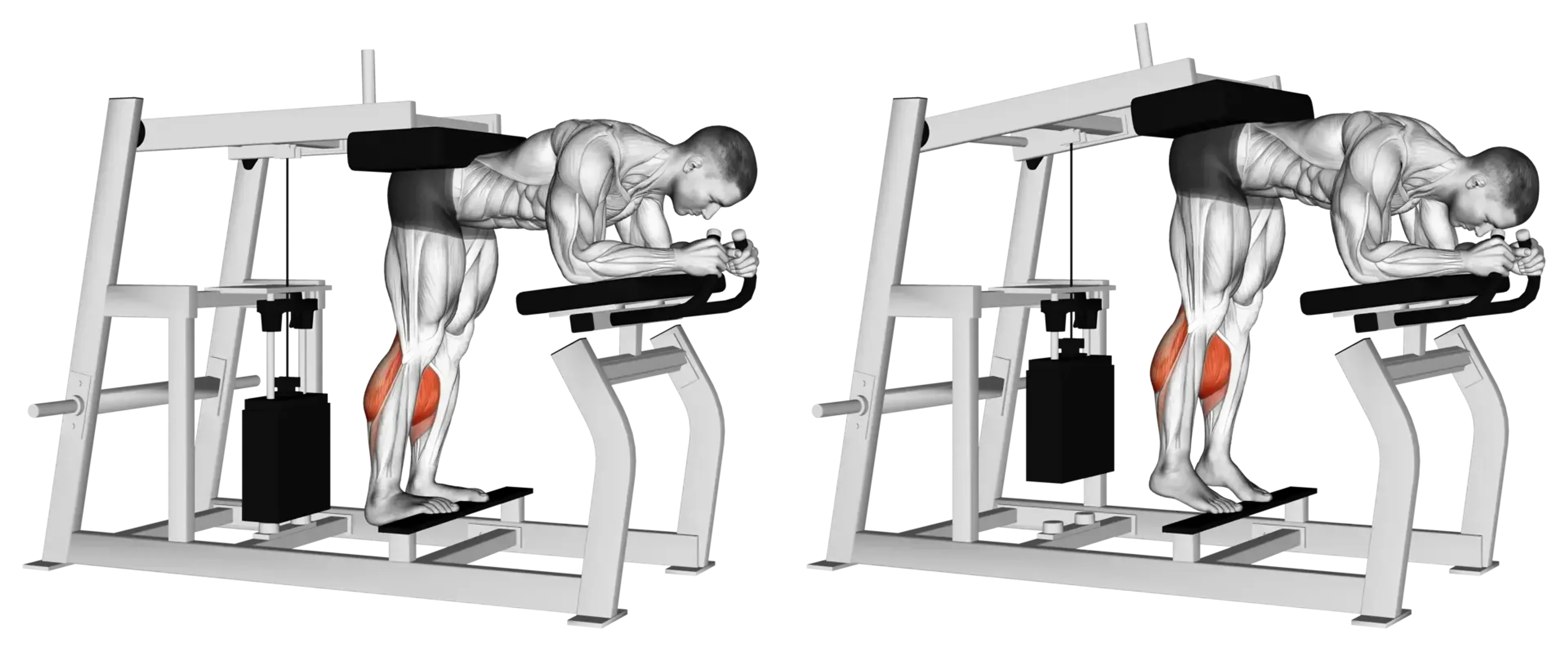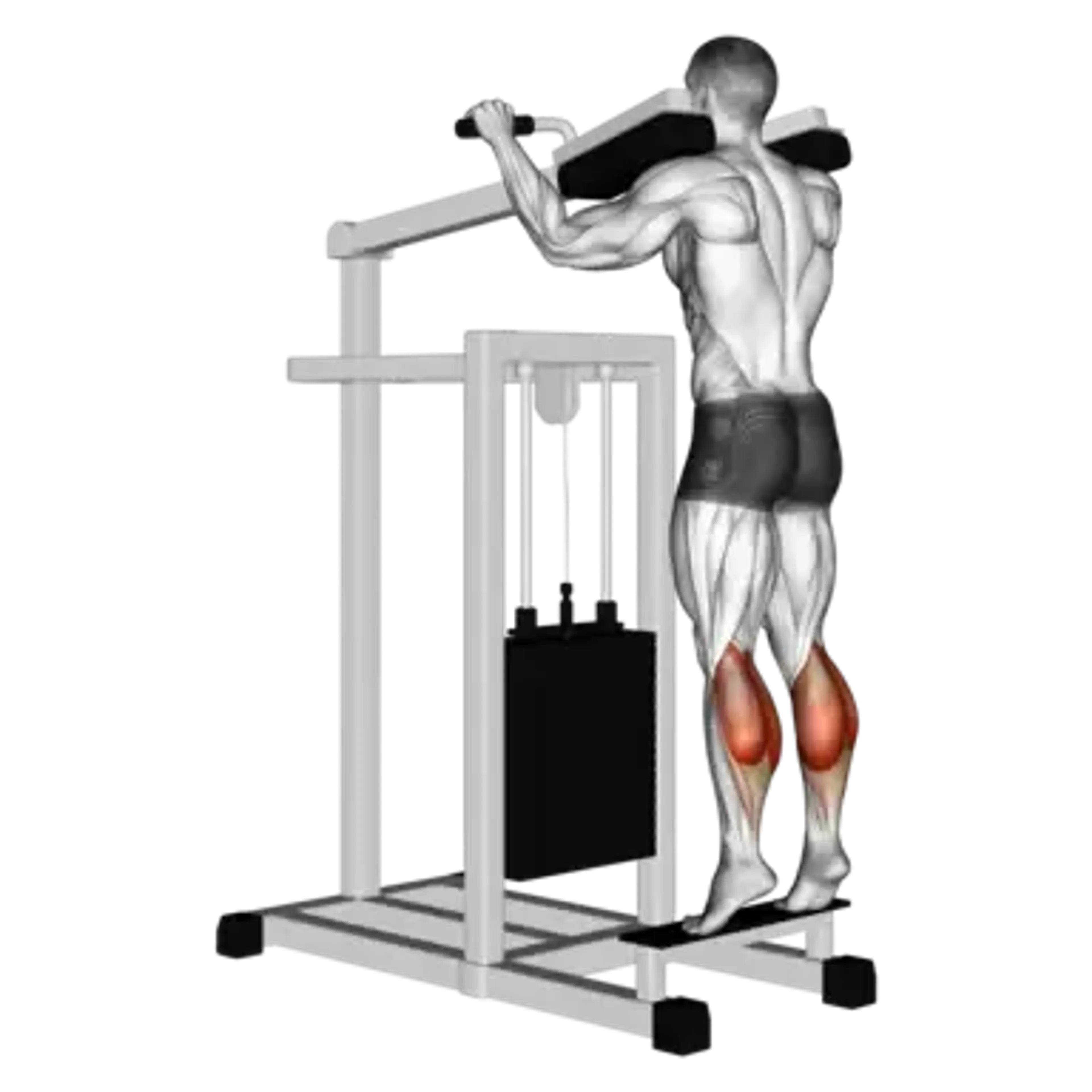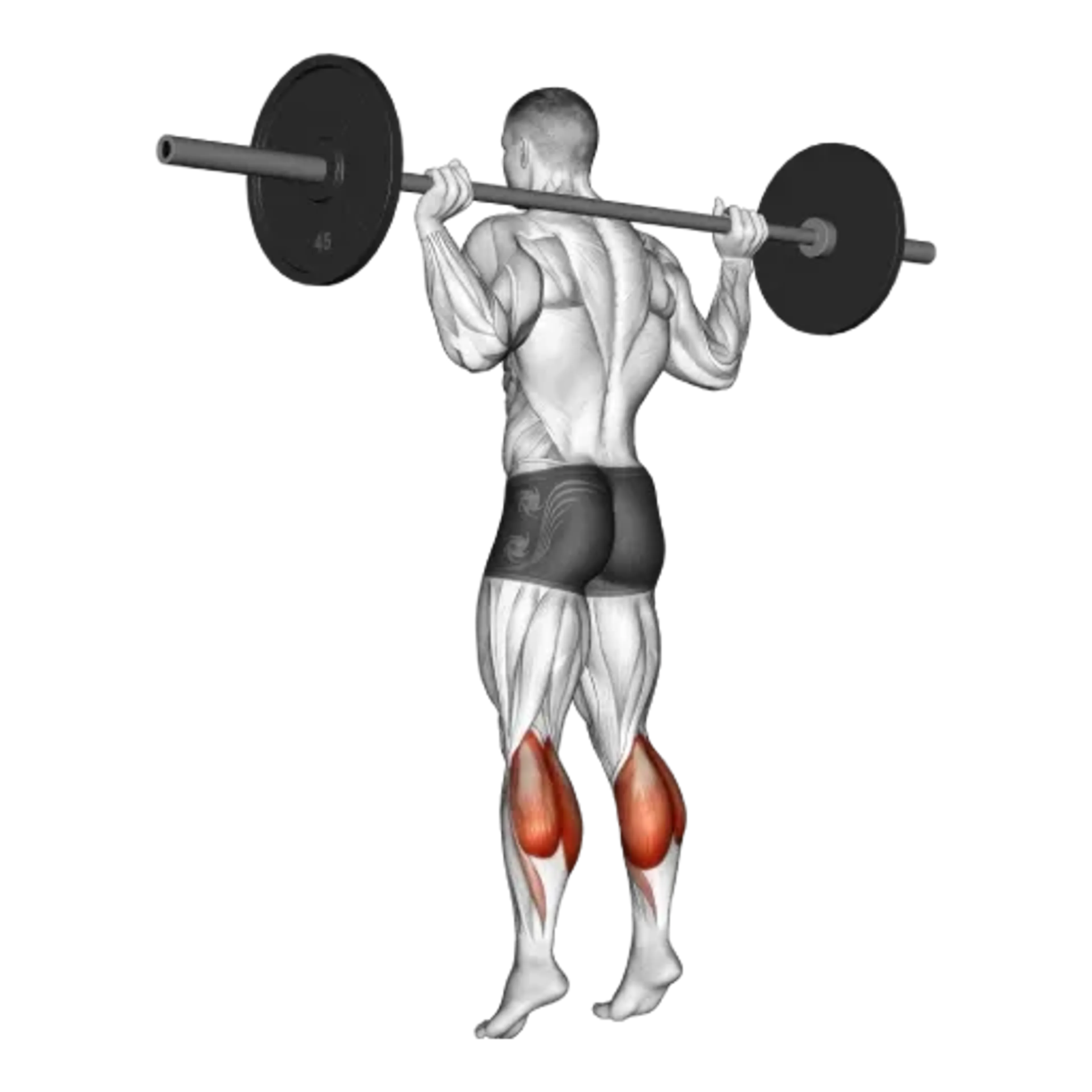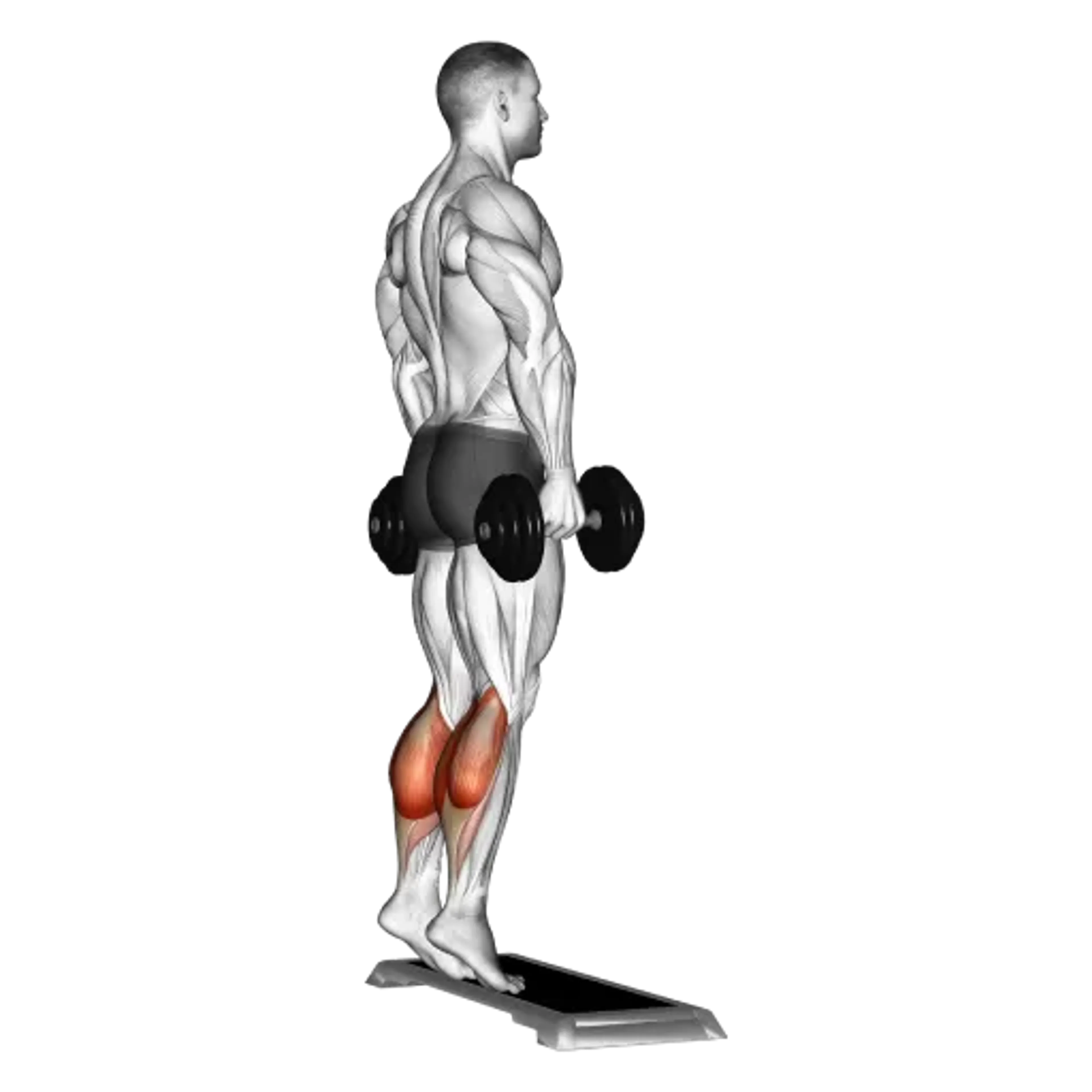Machine Donkey Calf Raise

Overview
- Primary Focus:
- Calves.
- Equipment:
- Machine.
- Difficulty:
- Beginner.
General Information
Machine Donkey Calf Raise is an isolation exercise that primarily targets the calves, specifically the gastrocnemius and soleus. It is a beginner-friendly exercise that provides a controlled and stable way to train the calves with added resistance.
Unlike traditional donkey calf raises, which require a partner or additional weights on the lower back, the machine version offers a padded support system that allows for safer and more consistent resistance. This makes it an excellent option for those looking to isolate their calves without unnecessary strain on the lower back.
Machine Donkey Calf Raises help improve calf strength, endurance, and overall lower-leg development. They are commonly used by athletes and bodybuilders to enhance ankle stability and explosive power for activities like running and jumping.
Muscles Worked
- Gastrocnemius (Lateral Head)
- Primary
- Gastrocnemius (Medial Head)
- Primary
- Soleus
- High
- Peroneus Longus
- Medium
Instructions
- Adjust the machine so the pad rests comfortably on your lower back or hips.
- Step onto the foot platform with the balls of your feet, keeping your heels hanging off the edge.
- Bend slightly at the hips and grip the handles for support.
- Lower your heels as far as possible to stretch the calves.
- Push through the balls of your feet and raise your heels as high as you can.
- Hold the top position briefly before lowering back down in a controlled manner.
- Repeat for the desired number of reps.
Common Mistakes
Injuries
Machine Donkey Calf Raise is a low to medium risk exercise when performed with proper form. However, improper execution or excessive resistance can lead to injuries.
- Lower Back Discomfort – If the machine pad is positioned incorrectly or too much weight is used, it may cause lower back strain. Adjust the pad to fit your height and use a moderate weight.
- Achilles Tendon Strain – Overstretching at the bottom position or using excessive weight can put stress on the Achilles tendon. Always maintain controlled movements.
- Ankle Instability – If the feet are not positioned correctly on the platform, there is a risk of rolling the ankle. Ensure even weight distribution and proper foot placement.
To minimize injury risk, warm up before exercising, maintain a slow and controlled motion, and avoid locking your knees at the top.
Alternative Exercises
Frequently Asked Questions
- Q: Can beginners do this exercise?
Yes, it's beginner-friendly and allows controlled resistance with the machine.
- Q: How many reps should I do?
Aim for 15-25 reps per set for endurance or 8-12 reps with heavier weight for muscle growth.
- Q: Is this better than standing calf raises?
It provides a different angle and a deeper stretch, making it a great variation but not necessarily better.
Overview
- Primary Focus:
- Calves.
- Equipment:
- Machine.
- Difficulty:
- Beginner.


